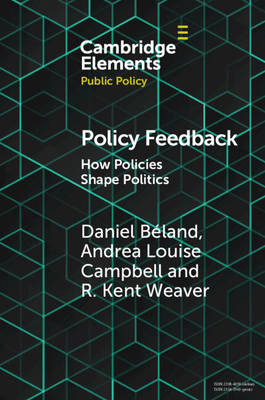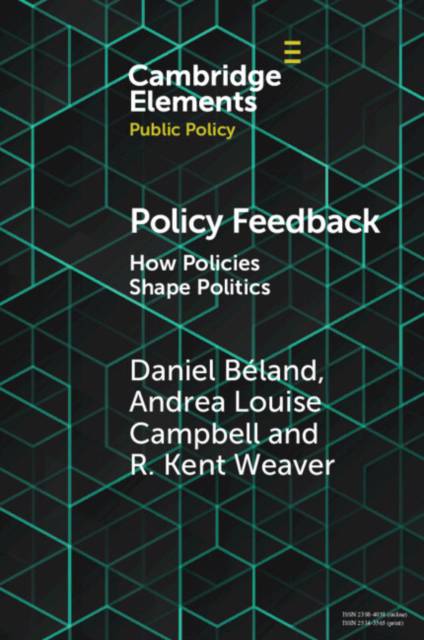
- Afhalen na 1 uur in een winkel met voorraad
- Gratis thuislevering in België vanaf € 30
- Ruim aanbod met 7 miljoen producten
- Afhalen na 1 uur in een winkel met voorraad
- Gratis thuislevering in België vanaf € 30
- Ruim aanbod met 7 miljoen producten
Zoeken
€ 31,95
+ 63 punten
Omschrijving
Although the idea that existing policies can have major effects on politics and policy development is hardly new, the last three decades witnessed a major expansion of policy feedback scholarship, which focuses on the mechanisms through which existing policies shape politics and policy development. Starting with a discussion of the origins of the concept of policy feedback, this element explores early and more recent contributions of the policy feedback literature to clarify the meaning of this concept and its contribution to both political science and policy studies. After exploring the rapidly expanding scholarship on policy feedback and mass politics, this element also puts forward new research agendas that stress several ways forward, including the need to explain both institutional and policy continuity and change. Finally, the element discusses the practical implications of policy feedback research through a discussion of its potential impact on policy design. This title is also available as Open Access on Cambridge Core.
Specificaties
Betrokkenen
- Auteur(s):
- Uitgeverij:
Inhoud
- Aantal bladzijden:
- 75
- Taal:
- Engels
- Reeks:
Eigenschappen
- Productcode (EAN):
- 9781108940542
- Verschijningsdatum:
- 23/06/2022
- Uitvoering:
- Paperback
- Formaat:
- Trade paperback (VS)
- Afmetingen:
- 152 mm x 229 mm
- Gewicht:
- 145 g

Alleen bij Standaard Boekhandel
+ 63 punten op je klantenkaart van Standaard Boekhandel
Beoordelingen
We publiceren alleen reviews die voldoen aan de voorwaarden voor reviews. Bekijk onze voorwaarden voor reviews.











